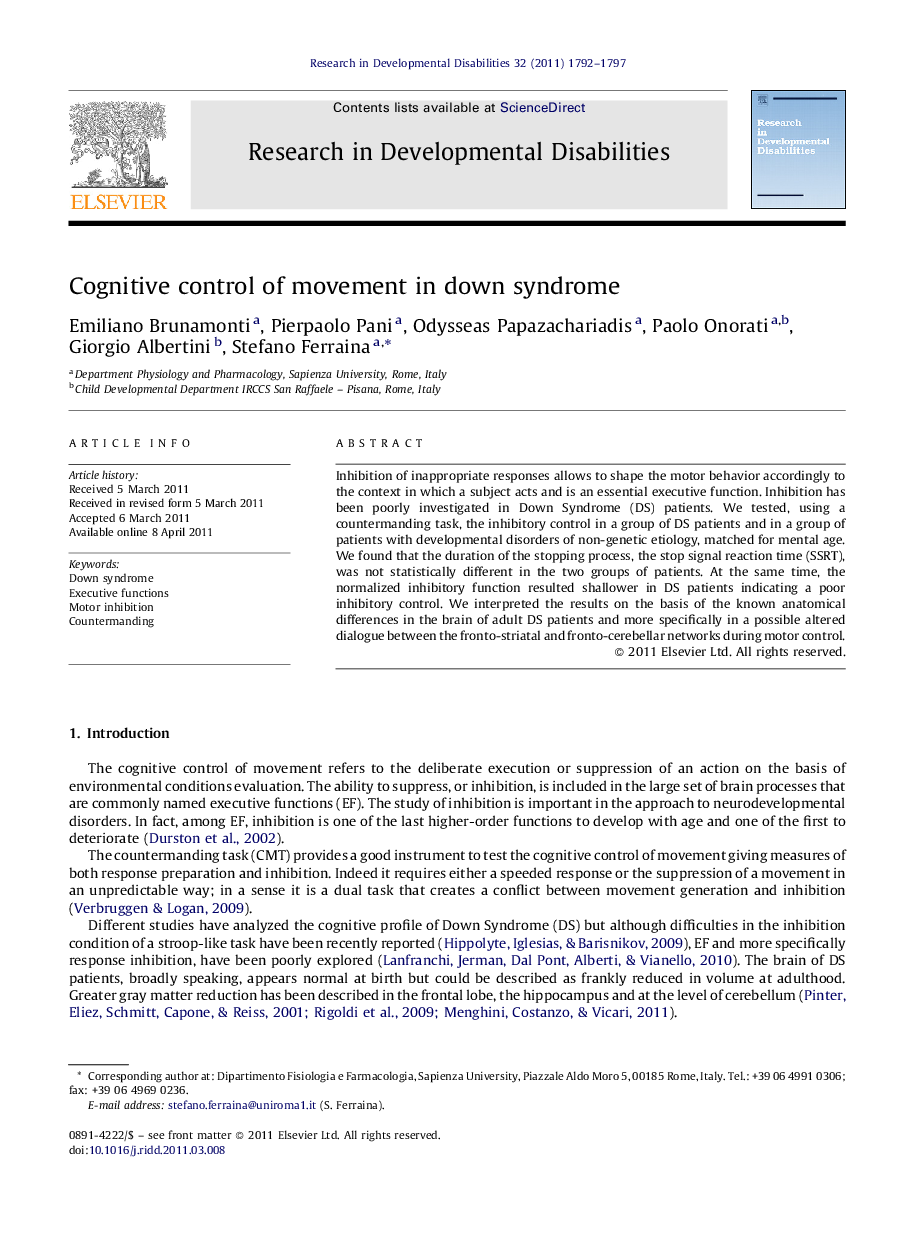| Article ID | Journal | Published Year | Pages | File Type |
|---|---|---|---|---|
| 371714 | Research in Developmental Disabilities | 2011 | 6 Pages |
Inhibition of inappropriate responses allows to shape the motor behavior accordingly to the context in which a subject acts and is an essential executive function. Inhibition has been poorly investigated in Down Syndrome (DS) patients. We tested, using a countermanding task, the inhibitory control in a group of DS patients and in a group of patients with developmental disorders of non-genetic etiology, matched for mental age. We found that the duration of the stopping process, the stop signal reaction time (SSRT), was not statistically different in the two groups of patients. At the same time, the normalized inhibitory function resulted shallower in DS patients indicating a poor inhibitory control. We interpreted the results on the basis of the known anatomical differences in the brain of adult DS patients and more specifically in a possible altered dialogue between the fronto-striatal and fronto-cerebellar networks during motor control.
► Executive functions have been poorly investigated in Down Syndrome patients (DS). ► We explored inhibitory control using a countermanding task. ► We compared DS to patients with developmental disorders of non genetic etiology. ► The inhibitory control resulted more impaired in DS patients. ► The results suggest a deficit of fronto-basal-ganglia-cerebellum networks in DS.
